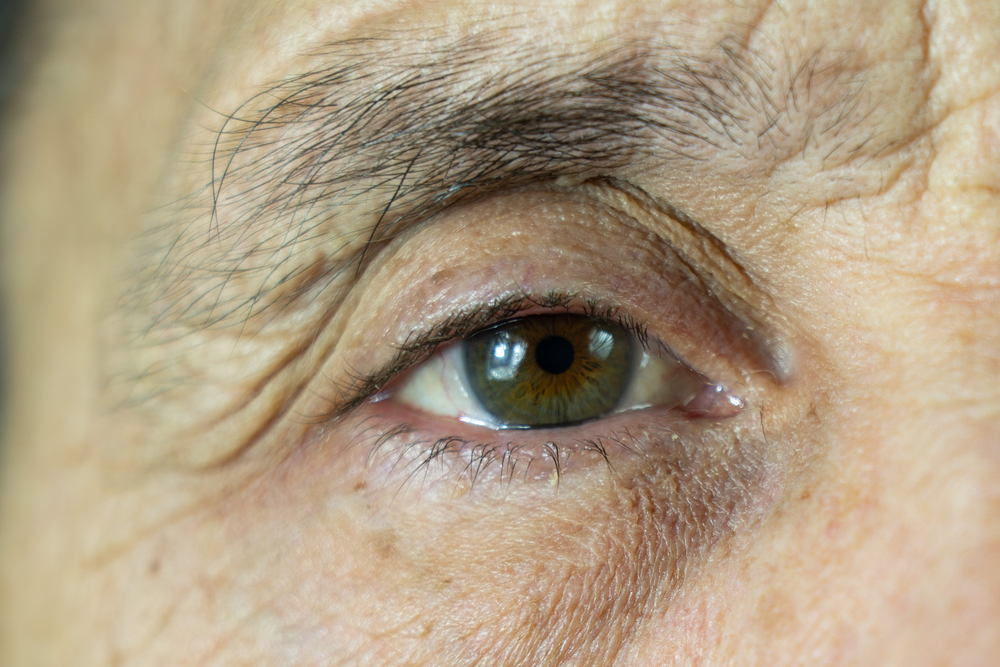Make an Appointment
Role of Occupational Therapy in Forensic Mental Health
This blog explores the specialised role of occupational therapy within forensic mental health, including how OTs support recovery, manage risk, and enable safe reintegration into the community.
Forensic mental health sits at the intersection of the healthcare and justice systems, supporting individuals who have a mental illness and are involved with the criminal justice system. These may include people in secure hospitals, correctional facilities, or community-based forensic programs.
In these complex and highly structured environments, occupational therapists (OTs) play a vital role in rehabilitation and recovery. Their work goes beyond traditional therapy, encompassing everything from risk assessment and functional skill development to supporting identity formation and community reintegration.
The environment in forensic settings can be restrictive and risk-averse, which often means clients experience significant occupational deprivation—a lack of access to meaningful activity and self-directed choice. This deprivation can contribute to further deterioration in mental health, disengagement, or institutionalisation. OTs challenge this by advocating for safe engagement in valued activities, tailored to each client’s capabilities, legal status, and recovery phase.
Importantly, occupational therapy in forensic settings is not solely about helping someone cope within a system, it’s about supporting transformation, enabling people to build a meaningful life after their contact with the justice system, while also promoting safer communities. This blog delves into the complex and nuanced practice of forensic occupational therapy, examining the layers of therapeutic, legal, and societal impact OTs make every day.

What Is the Role of the OT in Forensic Mental Health?
In forensic mental health, occupational therapists work with individuals who have both mental illness and a history of offending behaviour. Their goal is to promote recovery, manage risk, and support reintegration, while working within secure and often legally mandated environments.
Core responsibilities of OTs in forensic mental health:
1. Functional Assessment and Intervention
OTs assess a person’s ability to perform essential life roles and routines. This includes self-care, communication, emotional regulation, time management, and daily planning—within the context of secure settings and external risk factors.
2. Risk-Aware Recovery Planning
Unlike general mental health, forensic OT considers both rehabilitation and risk. Therapists must understand how occupational deprivation or dysfunctional habits may contribute to offending, and work to replace these with pro-social and purposeful alternatives.
3. Structured Occupational Engagement
OTs design and facilitate routines that are safe, consistent, and constructive, often in institutions where idle time is linked to increased risk. Activities may include vocational skills, creative expression, cooking, or goal-setting groups.
4. Interdisciplinary Collaboration
Forensic OTs are part of multidisciplinary teams that include psychiatrists, psychologists, nurses, corrections officers, and case managers. They contribute to court reports, risk assessments, and discharge planning.
5. Transition and Reintegration Support
Occupational therapy is key in helping individuals return to the community, building capacity in functional skills, developing structured routines, and supporting access to housing, employment, and social connection.
Mental Health Coordinating Council – Occupational Therapy in Forensic Mental Health
Occupational therapy brings a client-centred, recovery-oriented lens to environments that are often focused on containment and control.

What Is the Role of Occupational Therapy in Mental Health?
While this blog focuses specifically on forensic settings, it’s important to understand the broader role of OT in mental health, which forms the foundation of forensic practice.
Occupational therapists help people with mental illness participate in meaningful activities, also known as “occupations”, that support identity, purpose, health, and wellbeing. These activities could include anything from getting dressed, cooking meals, managing time and routines, building relationships, or engaging in community life.
In general mental health, OTs operate across acute psychiatric wards, community mental health teams, rehabilitation services, and transitional housing programs. They work with clients experiencing a range of conditions, including schizophrenia, bipolar disorder, major depression, and anxiety-related disorders.
In general mental health, OTs:
- Assess functional abilities (e.g. hygiene, finances, medication management)
- Support emotional regulation, social skills, and stress management
- Promote meaningful routines and structured daily activity
- Address sensory processing challenges
- Help reduce hospital admissions through skill-building and community connection
- Collaborate with other mental health professionals to provide holistic, person-centred care
This framework is adapted and expanded in forensic contexts to address more complex needs. Clients may have experienced trauma, long-term institutionalisation, low levels of trust in authority, and significant disruptions in occupational identity.
In forensic practice, therapists must also consider:
- The link between occupational dysfunction and offending behaviour
- The impact of restricted environments on motivation and skill development
- The challenges of navigating risk while promoting independence
- Legal and ethical implications of client engagement in therapy
- Reintegration after lengthy time in secure settings, where social and functional skills may have diminished
While general mental health OT focuses on recovery and independence, forensic mental health OT must also manage risk, containment, and rehabilitation, all within the limitations of justice-aligned care.

What Are Three Different Roles That May Be Performed by a Forensic OT?
Forensic OTs operate in diverse roles that combine therapeutic, systemic, and environmental responsibilities. Here are three key roles they may perform:
1. Functional Rehabilitation Specialist
In this role, the OT focuses on restoring or building life skills affected by mental illness and incarceration. This includes:
- Self-care and hygiene
- Planning and decision-making
- Cooking, cleaning, and budgeting
- Community navigation and transport use
- Social and vocational readiness
These tasks are often practiced in graded environments, from high-security settings to supervised community outings, so skills can transfer safely to real life.
2. Risk Management Contributor
OTs are uniquely positioned to assess how a person’s occupational choices and daily habits intersect with forensic risk. They provide input on:
- Risk of re-offending through lifestyle choices
- Behavioural triggers linked to environmental stressors
- Degree of independence and readiness for discharge
- Recommendations for community support needs
They contribute to reports used in court, parole, or clinical risk assessments, ensuring a holistic view of client capacity and risk.
3. Therapeutic Program Facilitator
Forensic OTs often run structured group programs designed to improve emotional regulation, communication, problem-solving, and self-reflection. These may include:
- Life skills training
- Vocational groups
- Art-based therapy
- Routine planning sessions
- Relapse prevention workshops
These roles are fluid and may be combined, depending on the client’s stage of recovery and setting (e.g. correctional facility, forensic hospital, or supervised housing).
RANZCP – Forensic Mental Health Services

What Do OTs Do in Forensics?
In forensic settings, occupational therapists act as bridges between security and rehabilitation. Their work involves navigating the tension between therapeutic progress and institutional risk, while always advocating for meaningful occupation as a human right, even for those involved in the justice system.
Occupational therapists in forensics operate across a wide range of settings, from high-security psychiatric hospitals and correctional facilities to community reintegration programs and transitional support housing. Each setting comes with its own clinical, legal, and environmental considerations.
Key contributions of OTs in forensics:
Restoring identity after long periods of institutionalisation
- Clients may have spent years in secure settings with little choice or autonomy. OTs help them reconnect with roles and routines that support a positive sense of self.
Supporting skill-building in safe, structured, and legally compliant ways
- This includes rebuilding self-care routines, developing time management and planning skills, and practicing independent living tasks like cooking, budgeting, and using public transport.
Promoting engagement in positive routines to reduce idle time
- Occupational deprivation in secure settings can lead to boredom, frustration, and risk escalation. OTs introduce structured, meaningful activity to support regulation and personal growth.
Helping clients manage the transition from secure care to independent or supported living
- This includes preparing for supervised leave, engaging in community-based trials, or participating in vocational readiness programs. Therapists also work with families and community services to facilitate continuity of care.
Advocating for dignity and equity within systems often focused on risk and punishment
- Forensic OTs ensure that clients are viewed as whole people, not just through the lens of their offending history. They challenge stigma, promote trauma-informed care, and embed recovery-oriented principles into complex systems.
Forensic occupational therapy is built on the idea that people are capable of change when they have the right support, the right environment, and meaningful goals.
By focusing on the link between occupation and behaviour, OTs help clients reconnect with purpose, structure, and identity, building safer outcomes for individuals and communities alike.
Forensic OT: A Growing Specialisation – OT Practice Magazine (AOTA)

Frequently Asked Questions (FAQs)
What makes forensic OT different from general OT?
Forensic OT works specifically with people who have a mental illness and a history of offending. It involves managing risk, working within secure environments, and balancing rehabilitation with public safety concerns.
Where do forensic OTs work?
In secure hospitals, correctional facilities, community forensic programs, court liaison services, and supervised community housing.
What kinds of activities do forensic OTs do with clients?
They help with life skills (cooking, hygiene, planning), emotional regulation, routine building, social interaction, and transition preparation.
Do forensic OTs write legal reports?
Yes. They contribute to multidisciplinary assessments used in court, parole hearings, and discharge planning, providing insights into functional capacity and risk.
Can OTs work in both justice and healthcare systems?
Yes. Forensic OT is a unique hybrid role that bridges mental health care and criminal justice.

Final thoughts
Occupational therapists working in forensic mental health help some of society’s most complex and vulnerable individuals rebuild their lives.
By supporting recovery, reducing risk, and promoting independence, they make a real difference to individuals, families, services, and communities.
If you're navigating a forensic mental health setting, or supporting someone who is, occupational therapy can help reintroduce purpose, identity, and hope.
Next Steps
Call 1300 731 733 or book online to learn how our allied health professionals, including OTs, support clients in complex mental health and forensic settings.
You can also:
- Browse our blog for more on mental health OT
- Explore our Mental Health Occupational Therapy services
- Refer to us via your mental health team or case coordinator
Request a tailored support plan through NDIS or clinical case management
Date Published: Thursday, June 26, 2025
Locate a Occupational Therapy Telehealth
Service Near me
Get the experience & convinence you deserve to support your or a loved one's allied health needs.
Our Occupational Therapy Telehealth team are currently serving & taking appointments in the following states and regions in Australia:
Need to get into direct contact with ur Client Services team? We're all ears. Call our team directly on 1300 731 733











